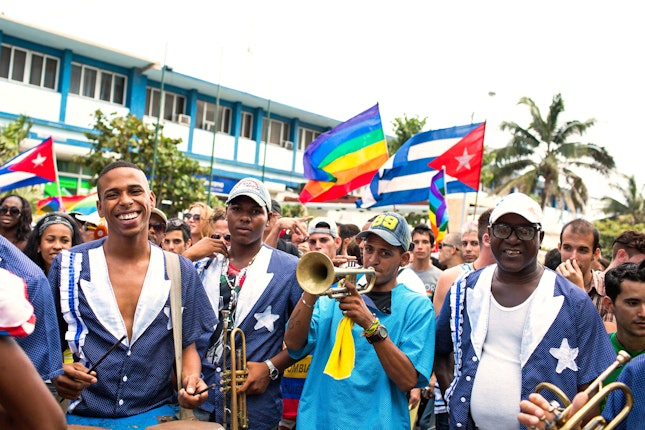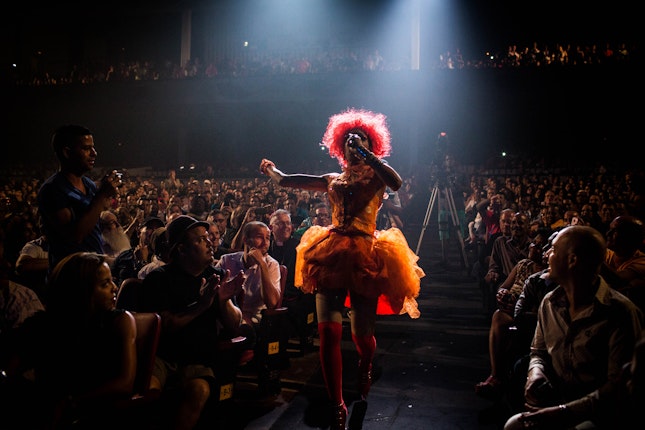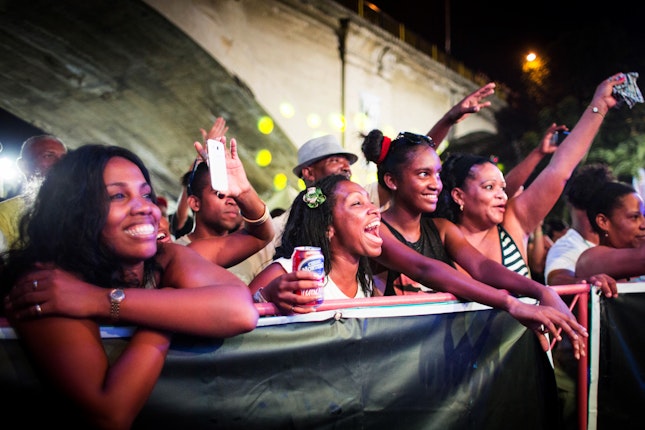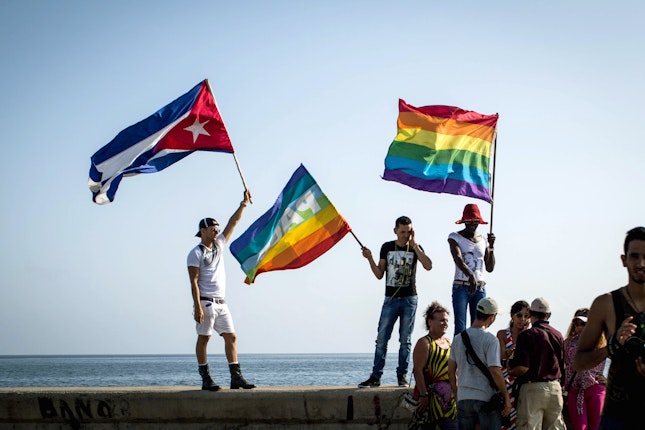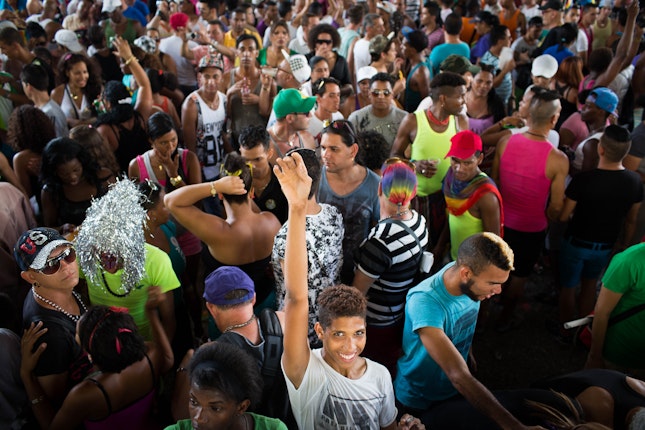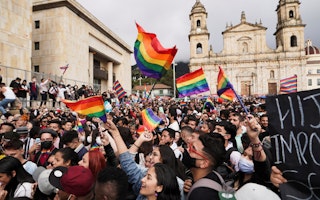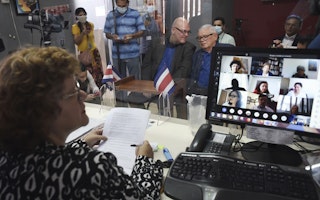How a Band from L.A. Ended Up Playing Cuba’s Gay Rights Festival
By Quetzal Flores & Martha Gonzalez
There was a moment early in the 1990s Zapatista struggle when, in an attempt to discredit the most visible of the Zapatista leaders, officials and popular media tried to “accuse” Subcomandante Marcos of being gay.
Marcos responded with the following statement:
Yes, Marcos is gay. Marcos is gay in San Francisco, black in South Africa, an Asian in Europe, a Chicano in San Ysidro, an anarchist in Spain, a Palestinian in Israel, a Mayan Indian in the streets of San Cristobal, a Jew in Germany, a Gypsy in Poland, a Mohawk in Quebec, a pacifist in Bosnia, a single woman on the Metro at 10 p.m., a peasant without land, a gang member in the slums, an unemployed worker, an unhappy student and, of course, a Zapatista in the mountains. Marcos is all the exploited, marginalized, oppressed minorities resisting and saying “Enough.”
For those of us in the barrio, that short response, which took the attempt to shame Marcos and turned it into a profound poetic declaration, was inspiring to our young minds. This was a pivotal moment for us as musicians from East L.A., deliberately building a movement of art and culture as a tool for redefining and reconstructing community. It didn’t take much to imagine our identities embedded in this statement, even if we were weren’t mentioned by name. Furthermore, it didn't take much to see how all “othered” identities are connected.
For over 20 years, our band Quetzal has been committed to the interconnectedness of the global struggle for social justice. Our commitment to engaging communities with music has afforded us experiences that have transformed our worldview. When we were invited to play in Havana, Cuba, in May of this year, we were beside ourselves. We knew that music would once again be the catalyst for new ways of being and thinking.
We learned that our musical participation was requested on behalf of the organizing committee for the fourth annual Jornada Cubana Contra Homofobia y Transfobia, Cuba’s version of a gay pride parade. Though Quetzal is generally not considered an LGBTI activist band, and no member has claimed LGBTI identity, we understood that our commitment to social justice and human rights parallels the direction Cuba is advocating with regards to LGBTI rights.
The invitation arrived on short notice and we scrambled to get our affairs in order so that we could be in Havana in two weeks’ time. After traveling through the night and arriving there in the afternoon, we were met by Tania Causse of Centro Nacional de Educación Sexual (CENESEX), the gay rights group organizing the event.
In a tremendously informative conversation with Causse, she expressed why it was important that a band such as ours participate in this year’s Jornada. Causse said that the intention of Mariela Castro—executive director of Centro Nacional de Educación Sexual (The National Center for Sex Education, in English) and daughter of Raul Castro, Cuba’s president—was not to “preach to the choir,” but rather initiate efforts to integrate the general population into the struggle for LGBTI rights.
The LGBTI community came out in full force to the Noche de Gala. We contributed three songs to the evening filled with dance and celebration: “Jarocho Elegua,” “Estoy Aqui,” and “Para Sanar.”
“Jarocho Elegua” is an ode to Elegua, a deity and a symbol for beginnings and ends. “Estoy Aqui” is about resilience and reclamation of existence in the face of adversity and disenfranchisement. We closed the set with “Para Sanar,” which acknowledges how the history of oppression can be healed with persistence and great effort.
This last song was especially on our minds as we thought about Cuba’s past treatment of the LGBTI community. The former labor and quarantine camps were acknowledged time and again during the celebration—a dark period in the country’s history that the Cuban government has since acknowledged was wrong.
The night gave way to many more acts including the legendary Isaac Delgado, Thelma Houston, and Alexander Abreu and Havana D’ Primera. After the show we spent an hour in the lobby meeting and greeting Cubanos who have been actively working towards this goal of a dignified integration.
The gala was followed the next day by a daytime “gay conga” with people marching, singing, chanting, and celebrating together. Here we witnessed the Cardinal of La Habana blessing same-sex couples amid friends and families. In short, Castro’s call for integration is powerful and gets to the root of the LGBTI struggle: it is a recognition of humanity.
In our short three days we understood that declaring the humanity of LGBTI people amounts to declaring their right to exist as human beings. As Mariela Castro put it, “Esto va generar enriquesimiento cultural e idealogico dentro de la sociedad Cubana” (This is going to generate cultural and ideological enrichment within Cuban society).
Quetzal’s trip to Cuba was made possible by the Center for Democracy in the Americas, a grantee of the Open Society Foundations.
Quetzal Flores is the founder of the East Los Angeles band Quetzal.
Martha Gonzalez is the lead vocalist of the East Los Angeles band Quetzal.
